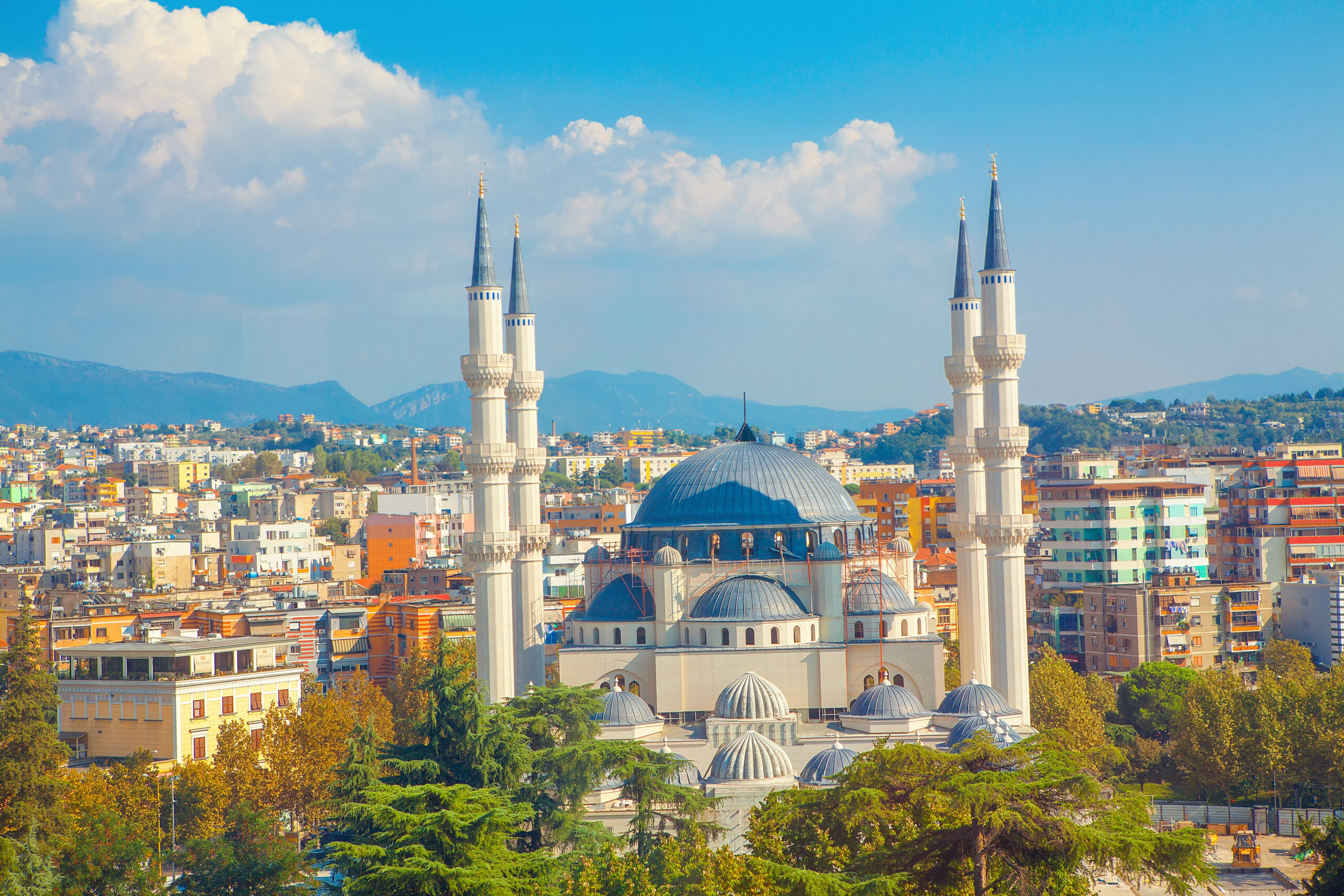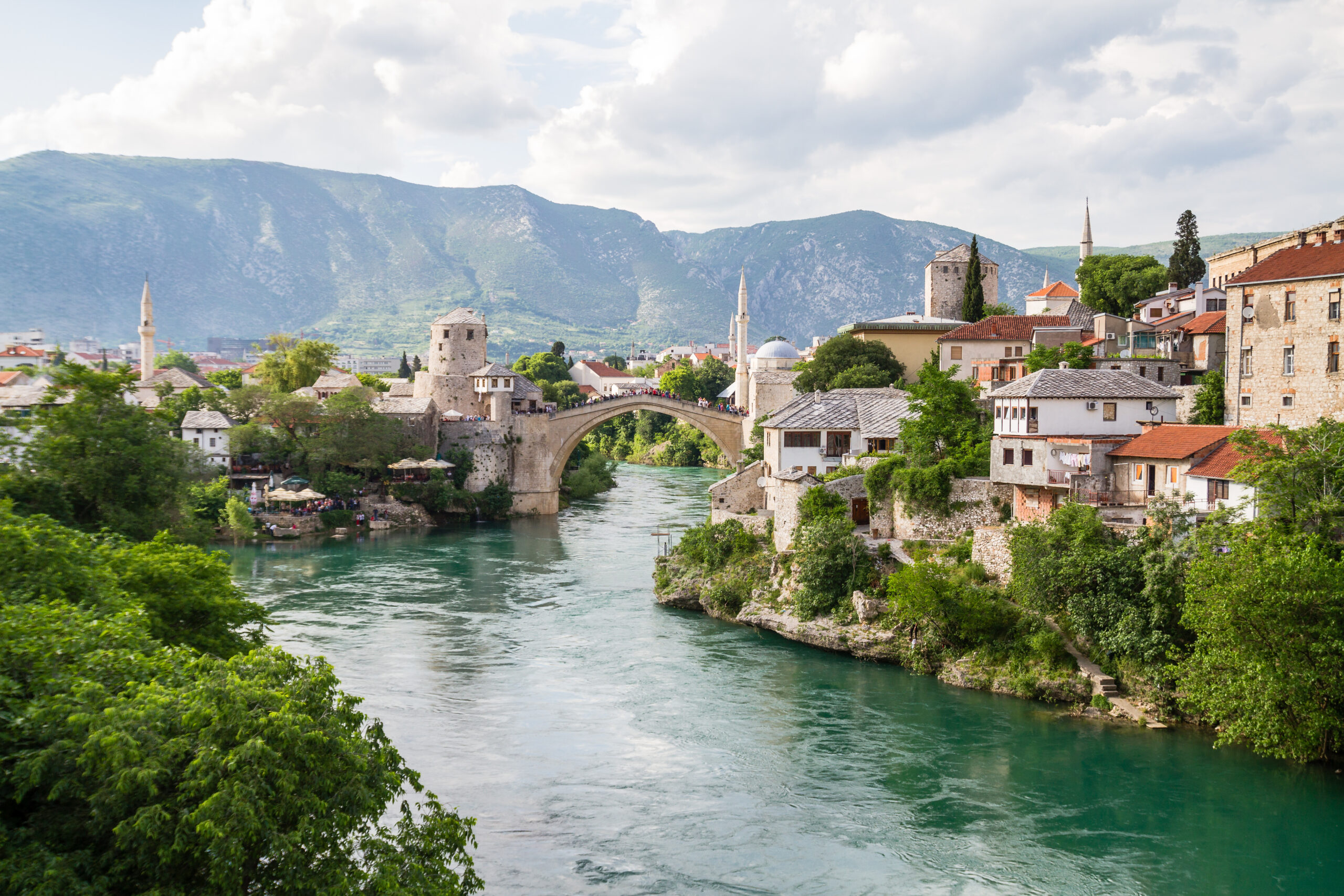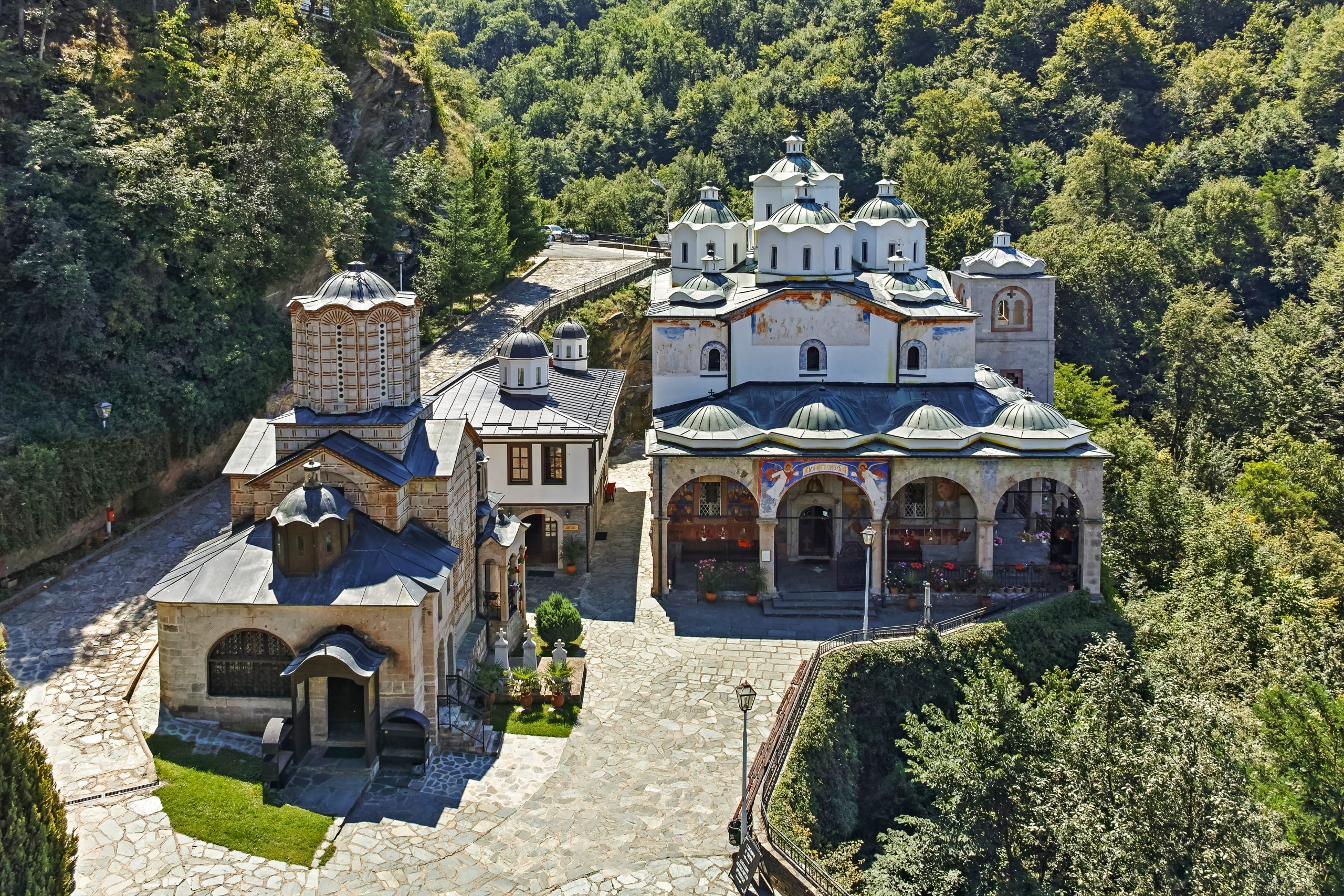Strategic Analysis Balkan Brief
Second half of April 2024
Petra Bošková, Matúš Vicen, Aneta Migátová

Photo: Shutterstock.com
Albania
Criticism Arises Over Proposed Surrogacy and Abortion Extension in Albania
An opposition member of parliament has voiced concerns over a government proposal to extend the abortion time limit by two weeks and introduce surrogacy, labelling the latter as a form of modern exploitation targeting economically disadvantaged women. Zheni Gjergji, a member of the Democratic Party, raised objections on April 23 regarding draft legislation concerning reproductive health and rights in Albania, highlighting potential repercussions on impoverished women if surrogacy were to be legalised.
The proposed law, already released for public feedback, outlines an extension of the abortion time frame from 12 to 14 weeks, with provisions for abortions safeguarding a woman’s health extending up to 22 weeks.
In addition to regulating assisted pregnancy donations and rights, the legislation permits assisted pregnancy for married heterosexual couples and single women but excludes homosexual couples.
A significant departure from current norms in Albania, the law introduces the concept of surrogacy, where a woman carries and delivers a child on behalf of another individual or couple, with the condition that the intended recipient is medically unable to conceive.
However, MP Gjergji expressed apprehensions about potential exploitation, particularly among economically vulnerable women. “This opens the door to widespread exploitation and contemporary forms of servitude, potentially transforming Albania into a hub for illicit activities,” remarked Gjergji.
Furthermore, Gjergji criticised the inadequate provision of free healthcare in Albania, particularly concerning reproductive health. Approximately 60 per cent of healthcare expenses in the country are borne directly by individuals rather than being funded through taxation. Since legalising abortion in 1995, Albania has largely avoided political disputes surrounding abortion rights, unlike many other nations.
Nonetheless, the landscape may be shifting, with some opposition MPs advocating for conservative agendas, citing concerns over protecting traditional family structures and espousing conspiracy theories regarding the government and rights advocates.
Sources:
- Gjergj Erebara, Balkan Insight, „Plans to Allow Surrogacy in Albania Criticised by Opposition“,https://balkaninsight.com/2024/04/23/plans-to-allow-surrogacy-in-albania-criticised-by-opposition/
Bosnia and Herzegovina
Republika Srpska Asserts Autonomy Through Controversial Legislative Moves
In a move perceived as a direct challenge to international oversight and foreign influence, the National Assembly of Republika Srpska, the Serb-dominated entity within Bosnia, passed sweeping laws granting exclusive control over elections and referendums to the entity on April 19. The adoption of these laws, announced by RS President Milorad Dodik as pivotal to the entity’s autonomy, garnered a majority vote in the assembly.
Contravening established BiH legislation requiring entity laws to align with state-level statutes, the new Election Law empowers Republika Srpska with jurisdiction over electoral processes, effectively sidelining the existing state-level Election Commission.
Pending approval from the People’s Council of Republika Srpska to ensure compliance with the interests of all ethnic groups, the law’s implementation awaits final confirmation.
These legislative manoeuvres follow recent interventions by Christian Schmidt, Bosnia and Herzegovina’s international overseer, who unilaterally amended the state-level Election Law in March.
In defiance of US sanctions targeting key figures, including assembly speaker Nenad Stevandic, the assembly also amended the Labour Law to reinstate cash payments, addressing concerns raised by affected officials.
In response to Schmidt’s efforts to enforce legal reforms, the RS assembly enacted an Immunity Law shielding Republika Srpska officials from prosecution for actions deemed contrary to the state’s constitutional order.
A new Referendum and Civil Initiative Law was passed, entrusting the organisation of referendums to the entity’s Election Commission. Further exacerbating tensions, the assembly endorsed a report rejecting claims of genocide in the Srebrenica region during the Bosnian War, a stance vehemently opposed by international observers.
Challenging Schmidt’s mandate, Bosnian Serb authorities have contested the legitimacy of his appointment since 2021, arguing against UN Security Council confirmation. Amidst heightened rhetoric and political posturing, the RS government and Serbian representatives rallied under the banner of “Srpska is Calling You,” mobilising support ahead of a UN vote on a resolution regarding the Srebrenica genocide. Dodik, rallying supporters, emphasised the need to safeguard Serb interests against perceived defamation and unwarranted blame.
Sources:
- Azem Kurtic, Balkan Insight, „Bosnian Serbs Defy Schmidt With Election, Referendum and Immunity Laws“, https://balkaninsight.com/2024/04/19/bosnian-serbs-defy-schmidt-with-election-referendum-and-immunity-laws/

Photo: Shutterstock.com
Montenegro
Montenegrin President Calls for Recognition of 1999 Tragedy
In the wake of the 25th anniversary of the Kaludjerski Laz incident, where six Kosovo Albanians, including children, lost their lives, President Jakov Milatovi emphasised the imperative of seeking justice and truth.
He urges authorities to persevere in uncovering the perpetrators’ responsibility and advocates for a memorial to honour the victims. The tragic events occurring amidst NATO’s campaign against former Yugoslavia remain unresolved, reflecting a sombre chapter in Montenegro’s history.
Milatovic stresses the victims’ right to justice and memorialisation, echoing calls from NGOs to reexamine the case. While past investigations failed to secure convictions, civil society organisations emphasise the importance of accountability to prevent future atrocities. Despite legal setbacks, efforts persist to shed light on this tragic episode and uphold the rights of all victims and their families.
Sources:
- Borislav Visnjic, Balkan Insight, „Montenegrin President Asks for Justice for 1999 Killings of Kosovo Albanians“, https://balkaninsight.com/2024/04/18/montenegrin-president-asks-for-justice-for-1999-killings-of-kosovo-albanians/
Kosovo
Serbia Arrests Kosovo Police Deputy Director Amidst Tensions
On April 17, Dejan Jankovic, Deputy Director of Kosovo Police, was placed in police custody by Serbia’s Ministry of Interior, prompting speculation of retaliation following Kosovo’s Council of Europe vote. While Serbia cited security concerns, it declined to provide specific details regarding Jankovic’s detention or its reasons. International figures, including Germany’s ambassador to Kosovo and the US ambassador, expressed concern over the situation, highlighting Jankovic’s previous efforts in police integration and cultural heritage protection.
Reports emerged of over 300 Kosovo citizens being halted at Serbian borders, leading Kosovo Prime Minister Albin Kurti to denounce the detentions as human rights violations. Kosovo’s Foreign Minister accused Serbian President Aleksandar Vucic of implementing threats in response to Kosovo’s Council of Europe vote, a claim denied by Serbia’s Interior Ministry, which stated it had only intensified border controls.
The EU condemned the actions, viewing them as a violation of the Agreement on Freedom of Movement, and called for Serbia to return to respecting the agreement. Tensions escalated following the Parliamentary Assembly of the Council of Europe’s vote recommending Kosovo’s membership, a move vehemently opposed by Serbia.
Sources:
- Milica Stojanovic, Balkan Insight, „Serbia Orders Police Custody for Kosovo Police’s Deputy Director“, https://balkaninsight.com/2024/04/18/serbia-ordered-police-custody-for-kosovo-police-deputy-director/
- Milica Stojanovic, Xhorxhina Bami and Antigone Isufi, Balkan Insight, „Vote Puts Kosovo One Step from Accession to Europe’s Chief Rights Body“, https://balkaninsight.com/2024/04/16/vote-puts-kosovo-one-step-from-accession-to-europes-chief-rights-body

Photo: Shutterstock.com
Serbia
Harmful and shadowy practices of Chinese mining companies affecting local villagers and the environment
The Serbian Ministry of Mining and Energy released that Chinese mining company Zijin has not been issued with the extension of a permit for managing mining waste. The ministry rejected the Company’s request in December last year. Zijin Mining Company has been operating without a permit since January 2023, which is almost 1,5 years of unregulated and unguided management of mining waste. The permit had not been issued due to the lack of required documents and data.
The company’s harmful practices met with civilian discontent when villagers in Krivelj protested against the local mining site. Protesters blocked access routes, which led to the exhaustion of the materials essential for the mining site’s operation, causing temporary closure. The company has been operating there since the 2018 takeover of the RTB Bor. Since then, Zijin has been accused of endangering civilians by making the surrounding area uninhabitable. Locals claim that roads and their properties have been damaged and the soil, air, and water polluted resulting in low profits in agriculture.
On top of these concerns, Chinese construction companies operating in Serbia are accused by human rights organisation ASTRA of human trafficking of Indian workers. The Serbian local office of higher public prosecutor is investigating these allegations made against construction company CEEG, which is under the Chinese giant Linglong Tire Company also operating in Serbia. ASTRA claims that workers are owed two salaries, and their passports are withheld by the employer. Other allegations of shadow practices with workers were made against the Zijin mining company. Workers described the practices as being in the army by lining up in the formation every morning, reciting safety rules, and vowing to follow the company’s regulations.
Additionally, according to the Serbian finance ministry, Chinese companies were the biggest exporters in Serbia, with a total of 8,7% of Serbian exports.
As Serbia closed at the beginning of this year another deal with China regarding the Association for Promotion of the Economy, Trade, Culture, and Tourism and last year’s Free Trade Agreement signed in Beijing, it seems that Chinese presence in the Balkans, especially in Serbia, is not in retreat.
Sources:
- Branko Pesic, RFERL, Like An Earthquake’: Serbian Villagers Stand Up To Chinese Mining Company Over Environmental Concerns, https://www.rferl.org/a/serbia-mining-china-environment-protests/32828984.html
- Djordje Jajcanin, See News, Chinese companies top list of Serbia’s exporters in 2023, https://seenews.com/news/chinese-companies-top-list-of-serbias-exporters-in-2023-849447
- Katarina Baletic, Balkan Insight, Serbia Refuses to Update Zijin’s Mining Waste Management Permit, https://balkaninsight.com/2024/04/17/serbian-ministry-refused-to-update-zijins-mining-waste-management-permit/
- Sasa Dragojlo, Balkan Insight, Serbia Prosecution Investigates Alleged Human Trafficking of Indian Workers, https://balkaninsight.com/2024/02/02/serbia-prosecution-investigates-alleged-human-trafficking-of-indian-workers/
- Sonja Gocanin, RFERL, It’s Like The Army’: Strict Rules For Workers At Chinese Mining Company In Serbia Spark Backlash, https://www.rferl.org/a/serbia-chinese-labor-practices-backlash/32598167.html
North Macedonia
Presidential elections in North Macedonia
Gordana Siljanovska-Davkova, the opposition candidate, emerged victorious in the first round of the presidential election in North Macedonia, marking a significant step in the country’s politics and desire to join the EU. The candidate unexpectedly triumphed in the first round of the presidential election, supported by the right-wing opposition party VMRO DPMNE. With 40.08% of the vote, Siljanovska-Davkova defeated Stevo Pendarovski, who had 19.93%. A runoff will take place on May 8, which is also the day of the important general election, since no candidate received more than 50% of the vote in the first round.
The first-round victory of Siljanovska-Davkova suggests a potential shift in the political climate of the nation. She has pledged to support regional stability and collaborate with all political factions if elected. This inclusive strategy can aid in addressing several issues, including ethnic conflicts and economic reforms in North Macedonia. The results of the upcoming presidential election are anticipated to have an impact on the results of the general elections, in which the opposition VMRO DPMNE is attempting to defeat the Social Democrats.
The entry of North Macedonia into the EU has drawn a lot of attention from the country in recent years. The country’s aspirations to join the EU may be impacted by Siljanovska-Davkova’s success in the presidential election. Should the opposition candidate prevail, discussions with the EU might be viewed from a different angle, perhaps reviving the process and quickening the required reforms. Following her vote, Siljanovska-Davkova declared that discussions on EU membership should not include anything related to national identity or culture. Among other problems are the nation’s pervasive corruption, economic disparity, and the necessity of preserving democracy. The key to Siljanovska-Davkova’s success as president will be her capacity to deal with these issues, work with political parties, and enact smart policies, according to her own evaluation.
The victory of Gordana Siljanovska-Davkova in the first round of North Macedonia’s presidential election marks a significant shift in the country’s political landscape. As the country moves forward to the runoff election and the accompanying general election, the outcome will shape the future direction of North Macedonia and its aspirations to join the European Union.
Sources:
- Politico, “Center- Right presidential Candidate Wins First Round Vote in North Macedonia”,Reuters, “North Macedonian opposition candidate leads presidential poll but runoff looms” https://www.politico.eu/article/center-right-presidential-candidate-wins-first-round-vote-in-north-macedonia/
- Balkan Insight, “Opposition Candidate Wins First Round Vote for North Macedonia Presidency”,https://balkaninsight.com/2024/04/25/opposition-candidate-wins-first-round-vote-for-north-macedonia-presidency/
- Reuters, “North Macedonian opposition candidate leads presidential poll but runoff looms”,https://www.reuters.com/world/europe/north-macedonia-votes-president-test-before-parliamentary-poll-2024-04-24/

Contact us